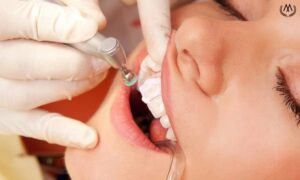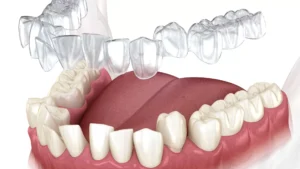Orthodontic treatment aims to ensure proper alignment of the teeth and jaws. Early intervention is an orthodontic approach often initiated during childhood, and it comes with several advantages and disadvantages. In this article, we will discuss the benefits and potential downsides of early intervention in orthodontic treatment.
Advantages
1. Guiding Developing Dental Structures
Early intervention offers the opportunity to guide the development of teeth and jaws. This facilitates healthier and more properly positioned teeth. Modern orthodontic solutions like MK Aligners provide the necessary direction for children’s dental development.
2. Shorter Treatment Duration
Early intervention can make it easier to address less complex orthodontic issues. Treatment initiated during childhood often results in a shorter duration. With the use of MK Aligners, children’s teeth can be corrected more quickly and effectively.
3. Protection of Teeth
Alignment problems can become more complex over time. Early intervention can prevent these issues and protect the teeth. This reduces the risk of tooth decay and other health problems.
4. Boost in Self-Confidence
Properly aligned teeth can enhance a child’s self-esteem. Aesthetic improvements achieved through early intervention can help children feel more comfortable in social settings. MK Aligners, with their transparent design, draw less attention, allowing children to navigate the treatment process more comfortably.
Disadvantages
1. Cost
Early intervention can often be costly. Families may face additional expenses due to the length of the treatment and the materials used. Products like MK Aligners can incur higher initial costs.
2. Children’s Compliance
It may be challenging for children to comply with the treatment process. Regular use of aligners and attention to oral hygiene are essential. If children do not adhere to these rules, the treatment duration may extend.
3. Impact on Dental Development
In some cases, early intervention can affect the natural development of teeth. Incorrect guidance during treatment may lead to more complex issues later on. Therefore, it is crucial for orthodontists to conduct careful evaluations.
4. Emotional Strain
Children may encounter emotional challenges during the orthodontic treatment process. The use of braces or aligners can impact their social lives. While MK Aligners may alleviate some of these concerns due to their transparent nature, some children may still find the treatment process overwhelming.
Conclusion
Early intervention in orthodontic treatment is an important approach that includes both advantages and disadvantages. Modern solutions like MK Aligners can ease the treatment process, but challenges such as cost and compliance may arise. Since each child’s situation is unique, the decision for early intervention should be carefully evaluated. Consultations with a qualified orthodontist play a critical role in achieving the best outcomes.





